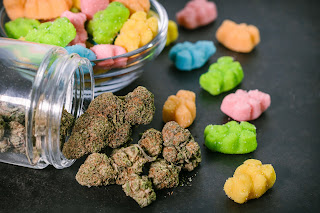1. Tell me your history with poison control and how you became an educator.
I am
currently a graduate student at the University of Texas at Arlington. I am
studying to get my MPH with a concentration in epidemiology. I got my undergrad
at the same school in public health. I've been in the health care industry for
about 10 years. I started my journey as a certified nursing assistant since I
originally wanted to be a nurse. Over the course of 4 years, I realized it
wasn't for me and stepped away from direct patient care and studying nursing
altogether. I spent the next several years finishing up my
undergrad and interning at school to popularize the public health program since
it was brand new. After college, I landed my first "big girl" job at a
women's health company and absolutely loved it. It was a new side of
healthcare. I helped develop the back-end processes for patients in telehealth
and trained the patient care department on these processes. I worked closely with
the company's medical and pharmacy to deliver patients their medication. I decided to go back to school during that time, so I have been doing both since
January.
2. Have you heard any
stories about calls that surprised you that come into the poison center?
I haven't heard any calls, but I did attend rounds with the toxicologists at work, where I listened to a patient
ingesting LSD and still having side effects 48 hours after ingesting it.
3. What do you think
people need to know about the people who answer the phones for poison control?
More people need
to know that the people who answer the phone are licensed professionals such as
nurses, doctors, and pharmacists, and some are bilingual
4. What do you enjoy
most about being an educator and why?
I enjoy being an educator
because I love what TPCN stands for. I think this is a resource that everyone
needs to know about. I didn't grow up knowing about the poison center and now
that I work for NTPC, I tell everyone about it! I also love spreading the good
word to kids, parents, and the entire community about the poison center
5. Why do you think it
is essential for people to have poison control as a resource for emergency
help?
There is definitely a
gap of knowledge in the community we serve about having the poison center as a
resource. Most people's first instinct is to call 911 when poisoning happens. When people know that the poison center is a free resource, they are
more inclined to use it. You never know if the poisoning could be treated
easily at home. It might save you time, gas, a trip to ER, and maybe your life.

